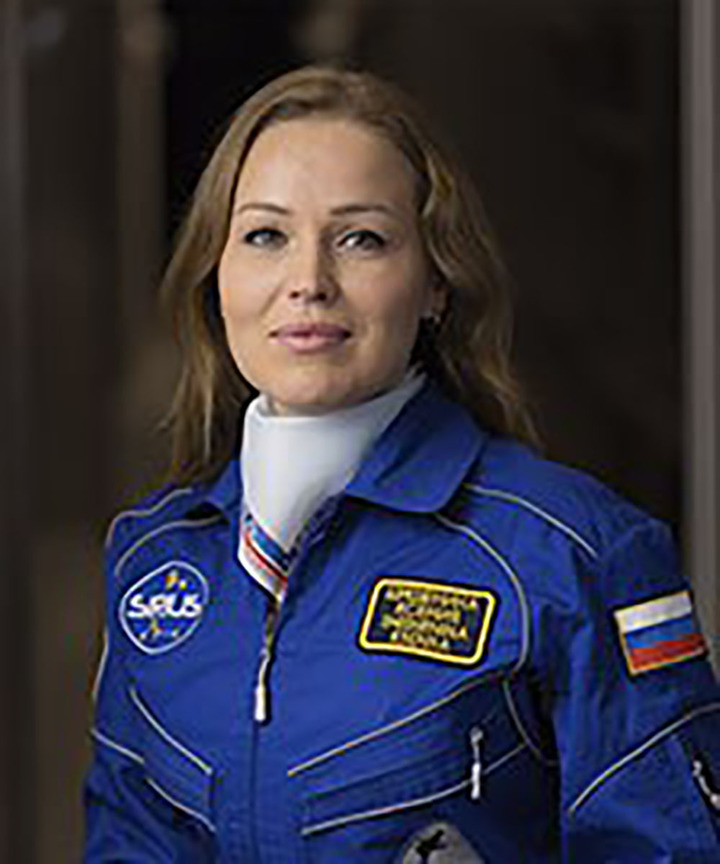A participant in the isolation “lunar” experiment spoke frankly about conflicts in the crew
[ad_1]
“Sensory hunger” and “information exhaustion” are an incomplete list of what leads to conflicts among participants in the annual experiment SIRIUS-2023. One of the participants in the simulated flight to the Moon, Ksenia Shishenina, told MK in a remote interview about the feelings she experiences after 100 days in isolation from the “earthly” world.
Let me remind you that the experiment began at the Ground Experimental Complex (GEC) of the Institute of Medical and Biological Problems of the Russian Academy of Sciences on November 14 last year. Six crew members, according to legend, went to the Moon. Their task includes conducting many medical, physiological, psychological, and technical experiments. The crew commander is an employee of the Cosmonaut Training Center named after. Yu.A. Gagarin Yuri Chebotarev and allergist Ksenia Orlova earlier talked about their impressions of the “flight”. Now a message from Ksenia Shishenina has reached the editorial office “from the direction of the Moon”.
Help “MK”. Ksenia Shishenina is an Aeroflot flight attendant, psychologist, journalist, researcher at the IBMP and the Pavlovsk Center.
Boring stories and actions
To my question whether conflicts arise among the crew members, Ksenia answered: “Yes, of course, conflicts periodically arise in the crew, for various reasons.”
Some conflicts, according to psychologist Shishenina, resolved themselves, for example, those that began with disputes over the rightness of one or the other interlocutor. “The “truth” was found and, therefore, the conflict became obsolete,” says Ksenia.
There is another reason for conflicts: not all crew members and cannot always realize that their behavior is only a reflection of the influence of environmental conditions on their body. “For example, “sensory hunger” and “information depletion”, which occur when contacts with the outside world are limited, lead to a decrease in mental activity, apathy, loss of interests, a tendency to drowsiness, and in some cases – to increased irritability, emotional lability, anxiety, – says the psychologist. – Of course, much depends on the duration and severity of sensory deprivation, individual personality characteristics, the presence or absence of experience in similar conditions, and the nature and volume of accompanying activities. And just imagine, we are already living in “Groundhog Day,” which is hard to bear. And when a person with inexhaustible enthusiasm tells the same story several times or repeats the same actions that can irritate others, this can also lead to conflict. One made a remark, the other was offended. But in the future, such a conflict will also be resolved. One will ask for forgiveness and say that he did not intend to offend. The other and the observers will subsequently have better control of themselves in similar situations. Sometimes, very carefully, you can defuse a tense situation with a joke.”
“I was surprised how people change in isolation”
To my next question – what surprised Ksenia about herself and those around her over the past 100 days, Shishenina answered this way: “To observe with my own eyes how people can change in conditions of isolation and, among other things, to feel this influence on themselves. The adaptive capabilities of the human body to environmental conditions are surprising: how little, it turns out, a person needs to remain productive and at the same time happy. I was also surprised by how easily we gave up phones and the Internet, which seemed impossible to us before isolation. I find the most discoveries in myself during these hundred days. I thought that I was a super calm person and nothing could piss me off. Now an approach has been “found” to me (joke).” Ksenia also noted that almost all team members unexpectedly fell in love with the food that seemed inedible to them at the beginning of the experiment. She did not expect herself to be able to do cardio workouts every day on a schedule: three days of training and one day off. “Every crew member performs them with the same enthusiasm, even those who had not trained before the project. When, for objective reasons, we cannot train, this is perceived as a lack of already habitual physical activity. We are given a break from sports training during EVA (extravehicular activities), for example.

There is not enough space outside the window and birdsong
One of my questions concerned options for improving the “interplanetary ship” in which the crew members are currently staying.
“There are already ideas within the framework of psychological support for the crew, but they have not yet been implemented, and I am ready to share them with you,” writes Ksenia. – All of the ideas listed below can create a new field for research opportunities in ground-based experiments for the purpose of testing them.
For example, “Virtual Window”, simulating a natural panorama or the perspective of a space flight when looking out the window. While jogging on an active track, you can display the landscape of the route on the monitor, which can run in a park, on the ocean, or on rough terrain. This has been practiced in fitness clubs for a long time.
The “greenhouse” can be supplemented with natural sounds (birds singing, the sound of rain or wind), creating the effect of being in the fresh air, thus smoothing out the negative effects of isolation. All of the above methods of psychological support can be fully applied in conditions of complete autonomy in future interplanetary missions.”
[ad_2]
Source link








